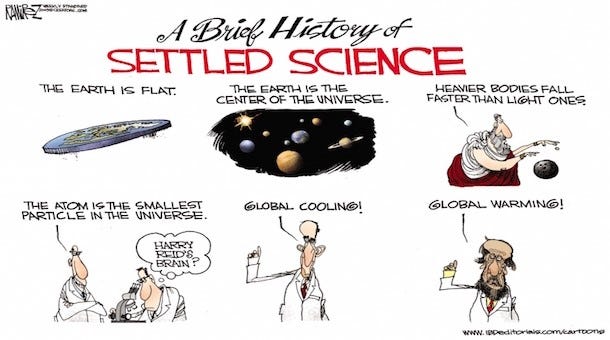“The greatest enemy of knowledge is not ignorance; it is the illusion of knowledge.” Daniel J. Boorstin
“Education is simply replacing ignorance with misinformation.” – many of my science professors at Cal
My Background
My father was a pharmaceutical research scientist for many years and that inspired me to follow in his scientific footsteps, finally earning an MS in Human Biochemical Genetics at the University of Michigan. A bad election, and I was in search of a new profession. But I never lost my passion for science.
The most important thing I learned was that every “fact” I thought I learned in science could be overturned in the future by new ideas, techniques and equipment. My father’s PhD thesis was disproven many years later by a technique called helium 3 activation analysis. Scientists have some valid concerns about Darwin’s theory of evolution, based on new theories and data. Newtonian physics was fine until we began to learn about quantum mechanics, a mind-bender if I ever saw one.
The Scientific Method
The method of discovery involves beginning with observation, a hypothesis of how things work and then, extensive testing to prove (or disprove) your hypothesis. Ideally, other scientists will repeat your experiments and further document the idea. But what we believe changes over time as we learn more. We no longer think homunculi (microscopic humans) run everything inside our body. While it may seem depressing, the constant updating of our knowledge is actually exciting; there is always more to learn.
This is why scientists across geographies collaborate and share data, tools and results. No one owns the truth. If you are seeking the truth rather than simply being right, you have a chance of being a successful scientist. Is that difficult? We all love to have our hypotheses vindicated and be right, but that’s not the way it works. Even the great Linus Pauling got shot down on his theory of the structure of DNA. And even Watson and Crick were surprised as we learned a bit more about DNA; most of it appeared not to code for anything. We’ve learned more sense then, but our knowledge continues to evolve.
In other words, there is no such thing a “settled science.” We don’t actually “know” anything, we only have the latest theories, and yes, that’s plural. At any given time, there are probably a variety of theories to explain something and while one might stand out as being “right” at this point in time, it probably is only a part of the truth, not the whole story.
“Climate Science”
If the field of climate science is truly regarded as a science, those in that field would never dare to claim it was settled, nor would they applaud suppression of alternate theories. It came as a great shock when the media and politicians began to suggest that it was time to penalize those who didn’t cleave to the most loudly proclaimed theory. In fact, many nasty comments were made about those who might doubt the popular story.
Google has announced that it will demonetize content on YouTube and other platforms if it “contradicts the scientific consensus on the existence and causes of climate change.” But there isn’t a scientific consensus. I’ve read numerous articles and heard many speakers who hold different theories. They are just not given the same courtesy that we have always extended to scientists. Sure, Google has the right to make these choices, but when it comes at the direction/instigation of our government, that’s dangerous. And it can be expensive, as the policies proposed to deal with the “problem” will have huge impacts on the economy, with potentially limited benefit. We simply don’t know.
We didn’t used to double down on one theory. For the Manhattan Project, five separate theories were funded, as it was critical to beat the Germans. But beginning with AIDS, we stopped considering dissenting scientific voices. If you’re interested, check out the work of Dr. Peter Duesberg; you might learn about some valid points of dissent there.
Time for Change
The voices that need to be quelled are those of the media and politicians who are uniquely unqualified to judge the data. For anything important such as climate change (and let’s face it – climate changes), we need to encourage all scientific voices and investigative challenges. Stop silencing scientists. The cost simply will be too high.
And when someone ventures to say “it’s settled science,” tune them out. That is not how scientists speak.





Great point. I remember learning about Lysenko's ideas on genetics. Russia became a crop importing country as they starved.
Totally agree. I think you are also highlighting what I call “selective science”, i.e., taking facts out of context to prove a theory.